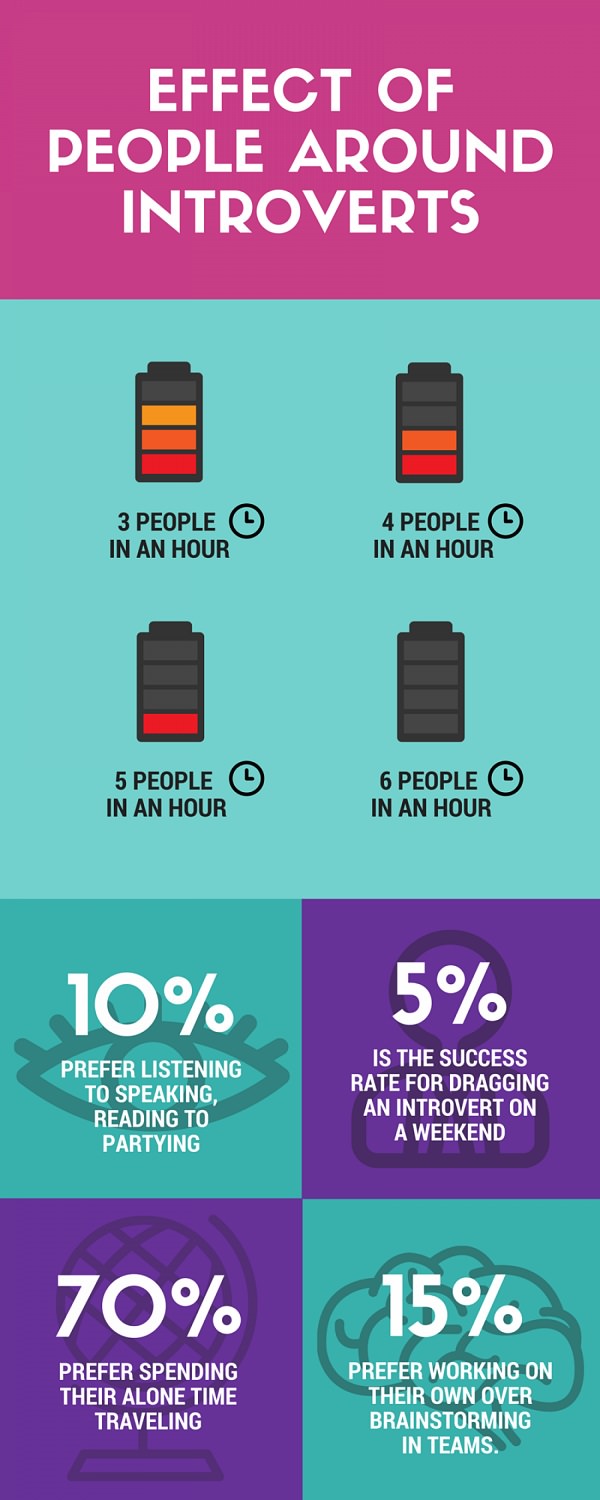Introverts adopt creativity as a way of expression
Introverts prefer pondering in solitude rather than brainstorming as a team. They like to take time before making decisions and thus fare better in careers that demand sufficient detailing. Also, they find intellectual stimulation through forms of art rather than talking it out.
They prefer meaningful conversations over small talk
Introverts are exhausted by any conversation that doesn’t involve exchange of emotions and/or ideas. They like to listen quietly and offer advice only when it’s solicited. Once done, they need plenty of time alone.
They dislike conversations on the phone
Introverts only attend phone calls when they have the energy and mood to contribute to the conversation. This is all because of the fact that they hate small talk.
They shut off when they want
Social interactions drain out introverts easily. Spending time alone is an absolute must to refuel and catch up with their thoughts.
They do not adapt
Extroverts are easy to please; they experience instant mood upliftment in cheerful surroundings, but introverts do not feel any such shift. They take time to catch up with the mood around them.
They are thinkers rather than speakers
Introverts choose their words wisely. They don’t talk much, but when they do, their words have more emotion, more thought behind them.
They tend to escape
Introverts like to occupy seats that are close to the exit. This makes sense, considering that they are naturally uncomfortable in crammed-up places.
They get distracted easily, but rarely feel bored.
Introverts are sensitive to their surroundings and constantly struggle with feelings of distraction. Any kind of overstimulation is a threat to their attention span.
They prefer expressing over mingling
Surprisingly, at least 50% of the stage performers are introverted in nature. Once they move backstage, they find it a real pain to keep up with small talk, adulation and prying questions about their personal life.

